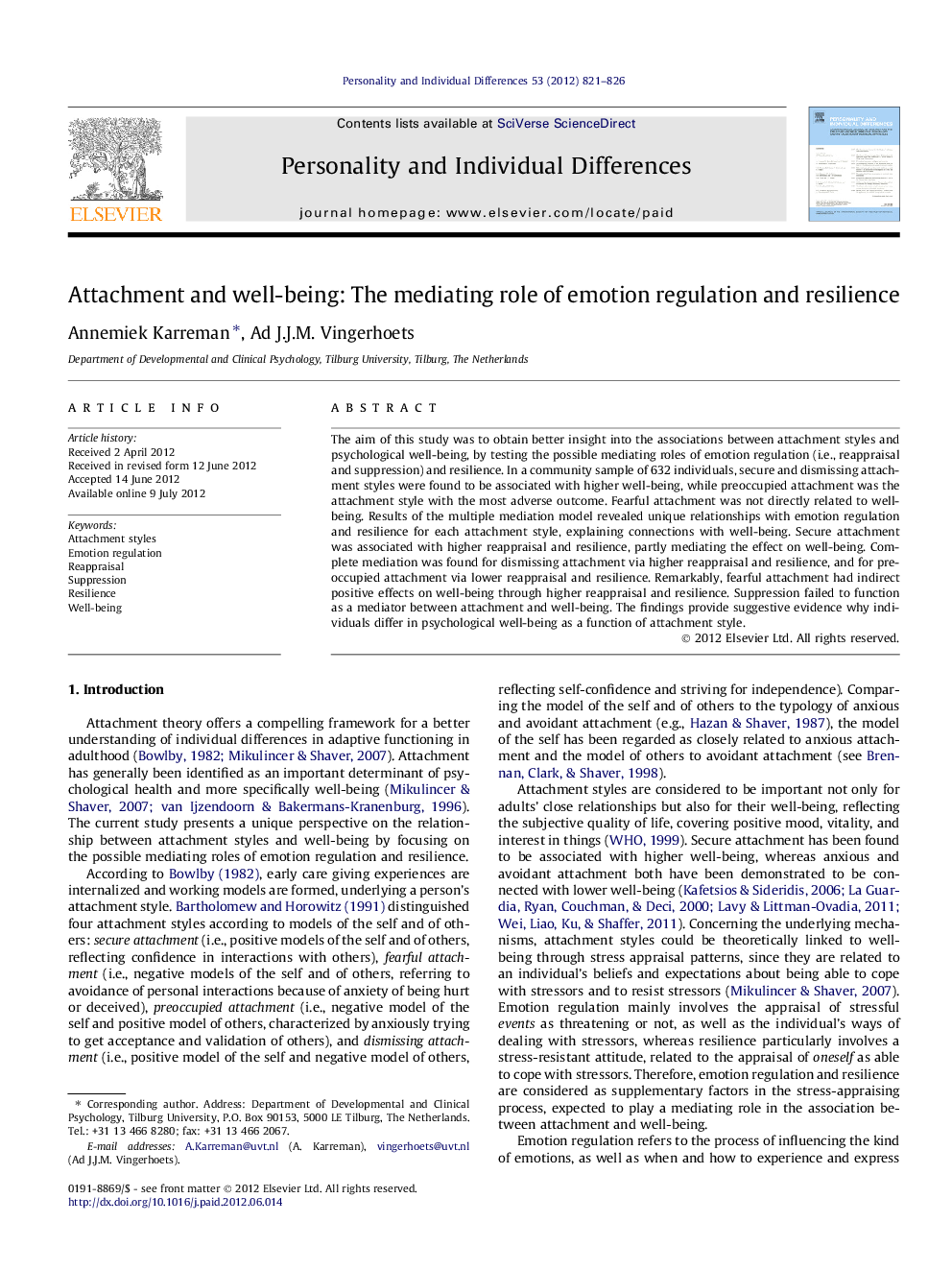| Article ID | Journal | Published Year | Pages | File Type |
|---|---|---|---|---|
| 891373 | Personality and Individual Differences | 2012 | 6 Pages |
The aim of this study was to obtain better insight into the associations between attachment styles and psychological well-being, by testing the possible mediating roles of emotion regulation (i.e., reappraisal and suppression) and resilience. In a community sample of 632 individuals, secure and dismissing attachment styles were found to be associated with higher well-being, while preoccupied attachment was the attachment style with the most adverse outcome. Fearful attachment was not directly related to well-being. Results of the multiple mediation model revealed unique relationships with emotion regulation and resilience for each attachment style, explaining connections with well-being. Secure attachment was associated with higher reappraisal and resilience, partly mediating the effect on well-being. Complete mediation was found for dismissing attachment via higher reappraisal and resilience, and for preoccupied attachment via lower reappraisal and resilience. Remarkably, fearful attachment had indirect positive effects on well-being through higher reappraisal and resilience. Suppression failed to function as a mediator between attachment and well-being. The findings provide suggestive evidence why individuals differ in psychological well-being as a function of attachment style.
► Offers insight into associations between attachment styles and well-being. ► Secure and dismissing attachment styles were associated with higher well-being. ► Preoccupied attachment was related to lower well-being. ► Mediating effects were found of reappraisal and resilience. ► Suppression failed to function as a mediator between attachment and well-being.
